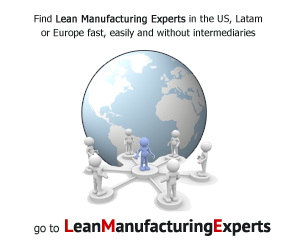PBA Group remains as lean manufacturing and fast as a startup
Singapore
FROM distributing mechanical and automation products to now manufacturing its own products using advanced manufacturing, PBA Group has grown by leaps and bounds in its 30 years of history.
Now, it has set up a training centre to help other small and medium enterprises (SMEs) like itself join the Industry 4.0 revolution.
Derrick Yap, chief executive officer of PBA Group, said the company’s transformation was done progressively by taking small steps each time the company moved up the value chain.
Mr Yap told The Business Times: “We didn’t feel just doing distribution is a viable business model. I thought this kind (of work) has very little value-add, especially (when) the Internet and web-selling started to take off, it means the world is becoming borderless. I thought distributors would serve less and less purpose.”
The company then went into having its own product range by undertaking research and development (R&D) to build machines like robotics.
Mr Yap said: “We took up the challenge and we were quite brave to move into another new field, but (we were) not completely diversified, (we were still) related to the field we were used to. From there, we went one step further and again one step further.”
Thus, from buying and selling products, it moved into contract manufacturing, and then designing and then component manufacturing.
Mr Yap felt that instead of assembling other people’s components, the company should build and own the intellectual property (IP) for the components, which it did.
He said: “Then we are able to give customers a complete solution. Now we can use the parts that we distribute, assemble into a plate where we machine design the entire module with our engineers, use components that we own and (for which) we have IP, into a solution for our customers.”
Besides making strides vertically, it has also expanded its footprint horizontally and geographically.
From the industrial space, it moved into the aerospace industry and has also made a mark in regional countries like Malaysia, Thailand, Indonesia, the Philippines, China and Taiwan.
Said Mr Yap: “It is the same logic . . . that we progressed vertically and horizontally step-by-step.
“We don’t try to jump, we don’t try to skip the stages, we try to move through each stage very quickly. Many people say we still have the speed of a startup, even though we are established.”
Although it is now a 500-strong company, it strives to be as lean as a startup, and is still nimble, active and quick to respond to changes.
Said Mr Yap: “That is done by empowering all the individuals and managers so that they can react very fast.”
The company’s staff are hands on and passionate, and have a great sense of ownership about the business.
He added: “We tend to run in such a way that we only tell you where we want to go. How you go there is your path. So people have a lot of leeway. It’s kind of like in a startup.”
Mr Yap is aware of the competition in the global arena and has decided that advanced manufacturing is the way to go, which has enabled it to reap a lower production cost per unit in Singapore than its China factory.
Its smart factory here is able to manufacture in “high-mix, low-volume” – ie many different products in small batches – even in a limited space of 5,000 sq ft.
He said: “If your production line is highly automated, the cost of your product is the cost of the equipment amortised over x number of years over x number of products you are producing in that production line.
“If my equipment cost is the same in Singapore, Malaysia and China, then it won’t really matter where my factory is anymore.”
The initial phase of adopting new technologies has not been easy but the company persevered. It has gone through the early stage and is now reaping a lot of benefits from automation.
Mr Yap said: “For us, I would like to think that it didn’t last as long as other companies would have to go through because we already have all the engineers in-house.
“The only difficult part was we had to choose long-term profit over short -term profit. We had to choose to incur all the costs, we had to choose to not provide solutions to external customers but use our engineers to provide solutions internally.”
Now, the group also has a training arm, Robotics Application Centre of Excellence (RACE), to drive Industry 4.0 change in Singapore and the region, as well as groom robotics engineers. It conducts robotics courses at various levels, for policymakers, business owners, educators to professional practitioners.

 News, training, experts opinion, bibliography, software and everything about Lean world.
News, training, experts opinion, bibliography, software and everything about Lean world.
